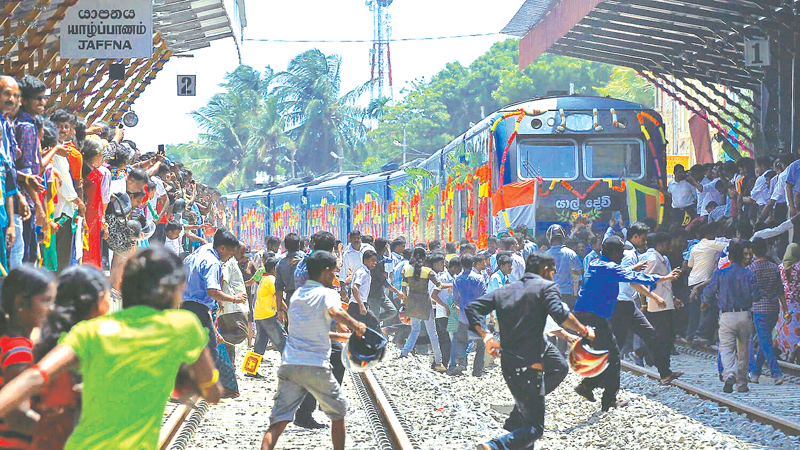Given the increasing complexity and pace of change we find ourselves surrounded by, accurately predicting what our world will be like in five years, let alone twenty, is a near-impossible endeavour.
The recent formulation of a ‘National Reconciliation Policy’ is a major step towards reaching the objective of reconciliation. The role of public service needs to be re-drafted in line with the requirements of the National Integration.
The danger, however, is that when a country is engaged (or pressured) in addressing the most crucial issues in the past, and most intractable issues, many of the other policy areas which are of paramount importance might get neglected or distracted. Therefore, a balance between the two is essential in policy making and implementation.
Managing For Development Results (MFDR)
This is especially overwhelming for educators, policy makers to prepare public officers for “jobs that have not yet been created, to use technologies that have not yet been invented and to solve social problems that we don’t yet know will arise.” Nevertheless, although our world today does not give any clear answers about tomorrow, it does provide some clues.
Many of the policies and projects have implemented in this country, where most of the time has not reached the desired outcome. Many of the time policies and projects are left with only documentation and it does not reach the hearts of the people of this country. The approach of Management for development results is essential in policy and project implementation in our country, especially in the public service. From the grassroots levels of provincial councils, coordinated efforts are needed to resolve the issues to bridge the gaps in the rural mass without confining to the North and East.
Public officers in every sphere need to consider the aspiration of stakeholders such as civil society, academics, youth, the religious leaders (sangha and clergy) in the implementation of policies and projects in reconciliation while considering gender equity and equality in order to reach the objectives of the said policies and projects.
Reconciliation is a process and it cannot be done overnight. Although the violence ended in May 2009, the healing of wounds of over two decades of conflict, achieving reconciliation and national integration, catching up on economic progress and development that eluded us due to conflict, and ensuring non-recurrence, remain challenging tasks for our nation. Public officers have a major responsibility while serving the public to listen to the grievances and the requirements of every community.
Institutional mechanism linked with reconciliation process needs to be strengthened to provide facilities to the public officers to deliver the tasks assigned. The task of improving governance from grass root levels to the top pertaining to government institutions is a challenge while maintaining the rule of law, and putting in place necessary measures to promote and protect individual rights; while ensuring the dignity of all and building a truly national identity while preserving our pluralistic society.
Further, many of the projects have implemented in the name of social harmony and reconciliation, need to have checks and balances to avoid duplication of implementation of such projects in future.
Our strength lies in our people and their capacities to uphold and restore Sri Lanka’s relations with the outside world and restoring lost credibility. The Government, since January 2015, therefore, started reaching out to the international community, re-engaging with governments and international organisations. The tasks of public officers do not limit to the relations with local institutions and whenever dealing with international organisations, they need to protect the country’s image.
National think tank in reconciliation
Think tank is to define and plan new methods for the advancement of education in reconciliation. Think tank could support the practical application of research and think in education, policy making and leadership development in reconciliation. Public officers could be part and parcel of the think tank giving ideas to further development.
The transformation that Sri Lanka needs to make should be more geared towards minimising the potential damage from, as well as making the most of the opportunities arising from, the increasing complexity and change.
Traumatic memories don’t simply vanish and we have learned, through experience since independence that grievances that are left unaddressed, can go on for generations, becoming entrenched, and holding the risk of descending into cycles of violence. Therefore, the role of the public officers in government institutions has a major role to play in prioritising the implementation of policies and projects in reconciliation. The challenges that we have before us are not easy ones. Sri Lanka needs its workforce to adjust and reorganise itself accordingly. This implies that the demands of the workplace as a whole are likely to keep changing and therefore requirements of the public service need to be looked as per the current context to serve the public requirements and aspirations.
Constructive ideas of people need to be valued in the reconciliation process. Shared values will be a culmination of a long process of public consultation. Promoting social cohesion via the principle of multiracialism will be the strategy. In all these attempts maintaining the national identity is important.



Add new comment